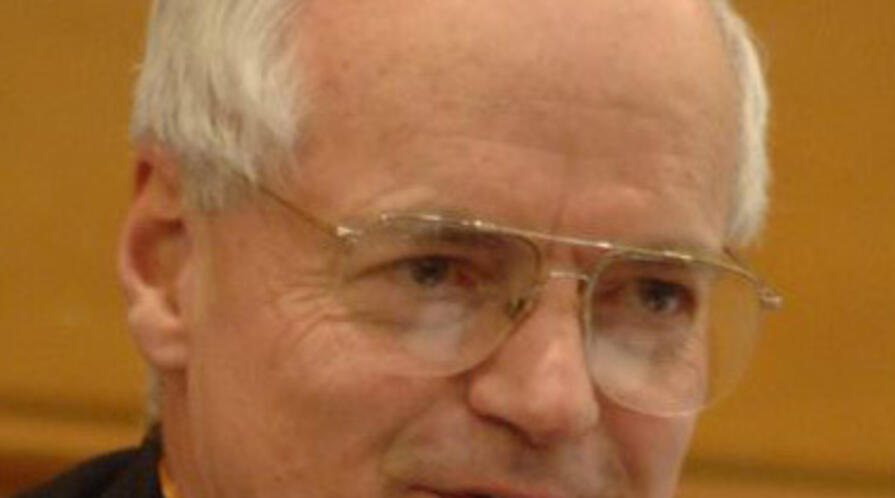Asia is a good place to begin rebalancing U.S. foreign policy because it is huge, it is dynamic -- and it is not Iraq says Shorenstein APARC's Donald Emmerson

It is tempting to dismiss President Bush's travel through Southeast Asia as aimless floating by a doubly lame duck. Getting things done will be harder without either the right to run for a third term in 2008 or the support of a legislative majority between now and then. But if that means having to work with others, at home and abroad, these new limits could be a virtuous necessity -- an opportunity to shed his administration's my-way-or-the-highway image and reverse the squandering of American legitimacy and leverage around the world.
Asia is a good place to begin rebalancing U.S. foreign policy because it is huge, it is dynamic -- and it is not Iraq. The Asia Pacific Economic Cooperation summit that the president is attending in Vietnam this weekend includes leaders from 21 economies that jointly account for 56, 48, and 40 percent, respectively, of global GDP, trade and population. Since 1989, the forum's economies have grown 26 percent compared with 8 percent for the rest of the world. The Middle East looks trivial by comparison.
The Middle East also lacks a tradition of successful multilateral cooperation. But if the Arab League has accomplished little, Southeast Asia is an exemplar of regional harmony. Cynical observers may deride as mere "talk shops" the many overlapping frameworks that span or involve Southeast Asia. On its calendar of events in 2005 the Association of Southeast Asian Nations listed 612 meetings. But talking is better than fighting, and no two ASEAN members have made war on each other since the group was formed nearly 40 years ago.
Northeast Asia is another matter. There is no ANEAN -- no Association of Northeast Asian Nations. Mistrust among China, Japan and South Korea is still too deep. But North Korea's decision to rejoin the Six-Party Talks (among China, Japan, Russia, the two Koreas, and the United States) has revived the prospect that these conversations could evolve into a framework for broader security in Northeast Asia. Of the six, all but North Korea will attend the economic summit this weekend in Hanoi. On the sidelines of that event, President Bush and his delegation should discuss with these five counterparts a possible shared strategy on North Korea when the talks reconvene, probably in China later this year.
Another key goal for the president on this trip should be helping to revitalize APEC. The "Doha round" of global trade liberalization has run aground. Without a last-minute push, APEC's goals of "free trade" among advanced economies by 2010 and among developing ones by 2020 will not be met. Meanwhile, bilateral trade agreements among APEC members have proliferated. The result is a "noodle bowl" of inconsistent arrangements that may, on balance, divert as much trade as they create. There is, for example, no consistent definition of the "rules of origin" that determine which items benefit from lowered barriers and which do not. Without lowering the quality of all these many bilaterals to their lowest common denominator -- i.e., the least liberal arrangement any signatory will accept -- an effort should be made to link and standardize them so that trade flows are enlarged and not merely redirected.
This may seem like a non-starter. On Monday, the House of Representatives failed to approve permanent normal trade relations with Vietnam. And that was even before the newly elected and arguably more protectionist Democratic majority is seated in January. But progress can still be made in Vietnam.
An advantage of the Asia Pacific Economic Cooperation summit for the United States is that it includes both China and Taiwan, and excludes the repressive regime in Burma. But APEC's uniquely trans-Pacific character is a more important political reason for strengthening the grouping. While APEC has lagged, East Asian regionalism has boomed. That has been good for East Asia. But U.S. and East Asian interests alike could be hurt if the Pacific Ocean ends up being split between rival Chinese and American spheres of influence.
The risk of gridlocked government should not keep the United States from seeking to deepen Asia-Pacific economic and political cooperation. The Bush administration may be a lame duck. But even a healthy duck needs a tranquil pond.
Donald K. Emmerson heads the Southeast Asia Forum in the Shorenstein Asia Pacific Research Center at Stanford University. He wrote this article for the Mercury News which was printed on Sunday, November 19, 2006. Reprinted with permission from the San Jose Mercury News.
